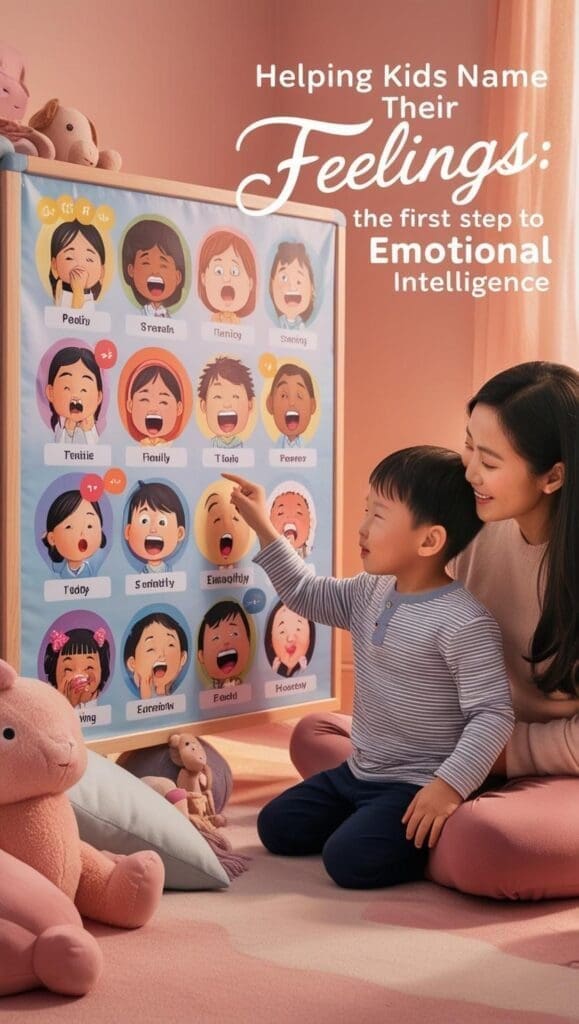Emotional Intelligence in Kids: What It Looks Like & How to Support It
The Magic of Emotional Intelligence in Childhood
Imagine a child who recognizes when a friend is sad, offers a comforting hug, and expresses their own feelings with clarity. Emotional intelligence (EQ) is a powerful skill that helps kids navigate friendships, manage emotions, and build resilience. Unlike IQ, which focuses on cognitive ability, EQ shapes how children interact with the world and handle challenges.
But how do you know if a child has high emotional intelligence? And more importantly, how can you nurture this vital skill in kids? Let’s explore the signs of emotional intelligence in children and actionable ways to support their emotional growth.
10 Signs of Emotional Intelligence in Kids
1. They Recognize and Name Their Feelings
One of the earliest signs of emotional intelligence is the ability to identify and articulate emotions. Instead of saying, “I’m mad,” an emotionally intelligent child might say, “I feel frustrated because my toy broke.”
How to Nurture It:
- Use emotion charts to help kids identify different feelings.
- Encourage them to describe their emotions rather than act out.
- Read books about feelings to expand their emotional vocabulary.
2. They Show Empathy Toward Others
Empathetic kids notice when others are upset and respond with care. They may ask, “Are you okay?” or offer their favorite toy to a sad friend.
How to Nurture It:
- Model empathy by validating their emotions.
- Use role-playing to practice recognizing others’ feelings.
- Teach phrases like, “That must have been hard for you.”
3. They Can Express Their Needs & Boundaries
Children with high EQ can communicate their needs without aggression or withdrawal. They might say, “I need a break,” instead of storming off in frustration.
How to Nurture It:
- Teach kids to use “I” statements (e.g., “I feel upset when…”).
- Praise them when they express needs respectfully.
- Role-play scenarios where they set boundaries kindly.
4. They Manage Their Emotions (Most of the Time)
All kids have meltdowns, but emotionally intelligent children gradually learn to self-regulate. They might take deep breaths when frustrated or ask for help when overwhelmed.
How to Nurture It:
- Teach calming techniques like breathing exercises.
- Offer a quiet space where they can reset.
- Encourage journaling or drawing emotions.
5. They Handle Frustration with Resilience
Instead of giving up when faced with a challenge, emotionally intelligent kids try again, problem-solve, or ask for support.
How to Nurture It:
- Praise effort rather than outcome (e.g., “You worked so hard on that puzzle!”).
- Encourage a growth mindset: “Mistakes help us learn.”
- Share stories of perseverance.
6. They Understand That Feelings Are Temporary
Kids with strong EQ recognize that emotions come and go. They know that sadness, frustration, or anger won’t last forever.
How to Nurture It:
- Label emotions as “passing feelings.”
- Help them track their moods over time.
- Teach mindfulness techniques.
7. They Adapt Well to Change
Transitions can be tough, but emotionally intelligent kids adjust more easily. They may ask questions to prepare for change and express their worries rather than resist.
How to Nurture It:
- Prepare kids for changes with advance notice.
- Reassure them by explaining what to expect.
- Encourage flexibility through small, everyday changes.
8. They Show Gratitude and Appreciation
Emotionally intelligent kids notice kindness and express gratitude. They may say “thank you” sincerely or appreciate small moments of joy.
How to Nurture It:
- Create a gratitude journal or bedtime gratitude practice.
- Model appreciation by thanking them when they help.
- Celebrate small acts of kindness together.
9. They Can See Things from Another’s Perspective
Perspective-taking is a key component of EQ. A child with this skill understands that others have different thoughts and feelings from their own.
How to Nurture It:
- Ask, “How do you think they feel?” when reading books or watching movies.
- Use storytelling to explore different perspectives.
- Play cooperative games that require teamwork.
10. They Can Apologize and Make Amends
When emotionally intelligent kids hurt someone’s feelings, they are willing to apologize and find a way to make things right.
How to Nurture It:
- Teach sincere apologies beyond “I’m sorry.”
- Model making amends by repairing mistakes.
- Praise their efforts to restore friendships.
Raising Emotionally Intelligent Kids
Emotional intelligence is not an innate trait—it’s a skill that can be nurtured through everyday interactions. By teaching kids to recognize and manage emotions, practice empathy, and communicate effectively, we set them up for healthier relationships and greater resilience in life.
Encourage emotional intelligence in small, consistent ways, and watch your child flourish into a compassionate, emotionally aware individual!
Which of these signs have you noticed in your child? Share your experiences in the comments!

About the Author
Hi, I’m Eve, a former school counselor with a master’s degree in School Psychology and a passionate advocate for children and families navigating sensory challenges. As a mom of children with sensory sensitivities, I deeply understand the journey special-needs parents face, and I dedicate myself to researching and sharing practical solutions to help children thrive and feel comfortable in their bodies. My goal is also to empower counselors, therapists, and psychologists with creative strategies and supportive resources to enrich their everyday practice. When I’m not writing or exploring new therapeutic approaches, you’ll find me spending quality time with my family and continually seeking inspiration from everyday moments.






